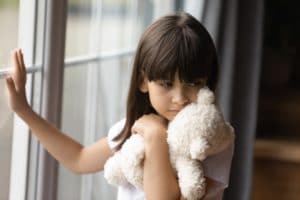 As humans have evolved over the years, their beliefs regarding health, safety, and psychological wellbeing have continuously grown. Most notably, the views related to child abuse and mental health have seen major developments in recent decades.
As humans have evolved over the years, their beliefs regarding health, safety, and psychological wellbeing have continuously grown. Most notably, the views related to child abuse and mental health have seen major developments in recent decades.
Historical child abuse
Thousands of years ago, what we now refer to as child abuse was widely accepted as the norm. In the patriarchy, the paterfamilias, the oldest living male in a family, had the right to control the family and family outcomes. He exercised this control through physical force– what we now define as “abuse”. Males would use physical force on any family member deemed to be disobedient. However, as early as the fourth century CE Constantine the Great began implementing laws to limit some of this control and protect children from harm.
Modern child abuse
Childhood abuse continues to be a complex issue in the 21st century. Although we understand much more about the long-term psychological and health impacts of abuse, it continues to be prevalent around the world. It is estimated that one in seven children experienced abuse in 2018. When considering the number of children who remained at home during the pandemic, it is anticipated that abuse rates will be higher and grossly underreported since children were not under the daily scrutiny of teachers, nor were they observed with usual regularity by doctors.
Abuse includes infliction of physical, emotional, sexual, or psychological harm, and/or neglect. In the United States, neglect is the most common form of abuse. Psychological abuse remains the most difficult form of abuse for individuals to identify for reporting purposes.
Those who have suffered childhood abuse are more likely to experience mental health difficulties as adults. These include depression, anxiety, bipolar disorder, PTSD, eating disorders, and substance abuse. Additionally, adult survivors of childhood abuse are more likely to engage in high-risk behaviors like smoking, alcohol and drug use, and unsafe sex.
As a therapist who has worked with many individuals with a history of childhood abuse, I have found that in addition to the mental health difficulties listed above, these individuals find it difficult to seek out support. When someone has a history of experiencing abuse from those individuals who are meant to support and protect, it is unsurprising that they will be reluctant to trust anyone. Seeking support from outsiders, whether therapists, psychologists, social workers, or teachers will be difficult for them and they will be ready to assume that these individuals will let them down or break their trust just as their caregivers have in the past.
Why should I address issues of childhood abuse?
Despite the understandable fear, apprehension, and downright gut instinct to avoid addressing past childhood trauma it is important to do so. If not addressed, trauma will continue to affect an individual, with deleterious influences on their daily life. Some examples are strong distrust of others, fear of rejection, anxiety in relationships, and anger. Research shows that therapy using cognitive behavioral therapy and/or systematic exposure to the traumatic memory can lead to significant improvements. Although individuals may need to wait until they are ready to seek out support, it is important that they realize support is available when they are ready.
Contact us today to schedule a complimentary 15-minute phone consultation or to book an appointment.
REFERENCES
Centers for Disease Control and Prevention. “Child Abuse & Neglect: Fast Facts.” Accessed July 31, 2020. https://www.cdc.gov/violenceprevention/childabuseandneglect/fastfact.html
SAMHSA. (2021, October 8). Understanding child trauma. Understanding Child Trauma. Retrieved December 16, 2021, from https://www.samhsa.gov/child-trauma/understanding-child-trauma
Springer, K. W., Sheridan, J., Kuo, D., & Carnes, M. (2003). The long-term health outcomes of childhood abuse. An overview and a call to action. Journal of general internal medicine, 18(10), 864–870. https://doi.org/10.1046/j.1525-1497.2003.20918.x
U.S. Department of Health & Human Services, Administration for Children and Families, Administration on Children, Youth and Families, Children’s Bureau. “Child Maltreatment 2018.” Accessed July 31, 2020. https://www.acf.hhs.gov/cb/research-data-technology /statistics-research/child-maltreatment
U.S. Department of Health & Human Services, Administration for Children and Families, Administration on Children, Youth and Families, Children’s Bureau. “Child Maltreatment 2018.” Accessed July 31, 2020. https://www.acf.hhs.gov/cb/research-data-technology /statistics-research/child-maltreatment
My therapeutic style is compassionate, non-judgmental, and provides a safe and open space so that you may express yourself freely. I work with adults of all ages who are struggling with anxiety, stress, depression, career issues, life transitions, interpersonal issues, low self-esteem, couples’ issues, grief, and cultural and identity concerns. Together, we can work towards improving your quality of life as we identify and process the areas of your life that are causing you pain or discomfort. Then, we will work on developing and utilizing new skills to create a positive future for you.

